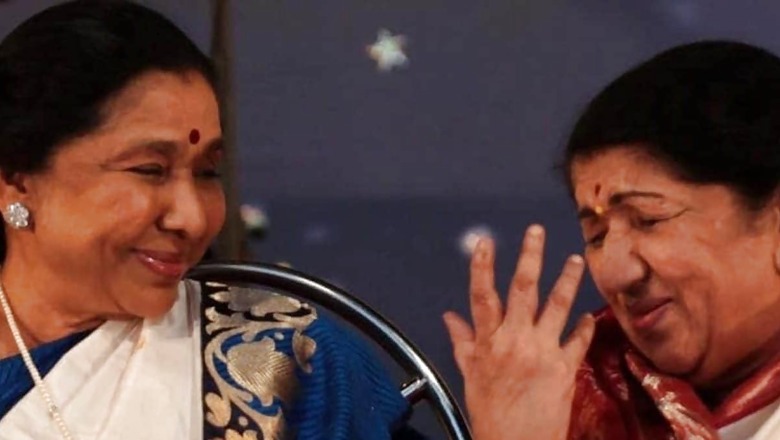
views
Lata Mangeshkar and Asha Bhosle, two iconic voices, have reigned supreme over Indian cinema for decades, their music transcending generations and regions alike. Yet, behind the success of Asha, who turns 91 today, lies a story of fear and determination. Asha once found herself in the shadow of her legendary sister, Lata, questioning whether she could carve out a unique identity in the music world. This fear pushed her to take bold steps—altering her voice and diving into a vast array of musical genres, from film music and ghazals to qawwalis and Rabindra Sangeet.
Today, Asha Bhosle is celebrated not only for her versatility but also for her extraordinary achievements, including the Guinness World Record for recording 12,000 songs in 20 languages, the prestigious Dadasaheb Phalke Award, and the Padma Vibhushan.
In an interview with ‘India Today’, Asha reminisced about a pivotal moment early in her career when a mix-up forced her to rethink her approach. “I come from a family of musicians. Right from my father to my sister, they were all singers. My voice was very much similar to didi (Lata Mangeshkar). Initially when I sung, my voice would come out same as didi,” she explained. One day, a production man mistakenly thought a song sung by Lata was actually Asha’s. Asha recalled, “He mistook Didi’s voice to mine. He said, ‘Yeh Asha ka gaana hai,’ and I had to correct him right away.”
This mistake was a wake-up call for Asha. It was then that she realized her future success depended on forging her own path. “I thought to myself, if I will continue to sing in a similar voice to didi, then I will never get work as long as didi is in the business,” she admitted. Determined to make a name for herself, Asha began experimenting with various vocal styles, from western influences to traditional Indian music.
Reflecting on her evolution, Asha revealed, “After this incident, I began to change my style of singing. I started to watch English movies to learn western songs, observe how they would sing in English. I also learnt how to sing Qawwali, Ghazal, the voice modulations needed in different form of singing. I started to learn it all.”
Despite the natural competition between the two sisters, Asha viewed it as a motivating force. “Whenever I used to record with didi, I had to be extremely conscious. I had to be prepared as to what different thing will she add this time to this song,” she confessed. The pressure to match Lata’s creativity pushed Asha to leave her own mark on their collaborations. “There was definitely a competition between us,” she acknowledged, though she emphasized, “It was a healthy one. This (competition) enhanced our songs.”
Asha’s voice went on to define some of Bollywood’s most iconic songs, from ‘Aaja Aaja’ (Teesri Manzil) and ‘Chura Liya Hai Tumne Jo Dil Ko’ (Yaadon Ki Baaraat) to ‘Mera Kuch Samaan’ (Ijaazat). Her unique sound, distinct from her sister’s, teased listeners and cemented her legacy in the music world. Even when she teamed up with Lata for classics like ‘Main Chali Main Chali’ and ‘Chhap Tilak Sab,’ Asha couldn’t shake the nerves, saying, “The experience remained the same,” no matter how many times they collaborated.

















Comments
0 comment